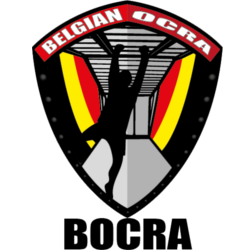OCR History
It all started with the event organizer Billy Wilson, perhaps not unexpected, Mr. Wilson is a British veteran. Dressed up as the front- and back side of a horse, MR. Wilson ran the London marathon together with his son. Wilson wanted to make running more interesting, the next step was a yearly cross-country race on his farm filled with mud pools, ditches and military exercises. The first obstacle run was born: Tough Guy.
The American Harvard student Will Dean was training for the triathlon and marathon at that moment, but he found the training boring. Tough Guy was ideal for this! Dean saw the international potential for such an event and researched Though guy, he provided his report to Harvard. Once he was back in the USA Dean organised tough Mudder, an obstacle run of about 20km with 4.500 participants. Nowadays Tough Mudder is one of the largest obstacle runs in the world.
Source: Obstakels.com
And in Belgium?
We have to go a few years back in time, to May 2012. Golazo, one of Belgium’s most known event organizers came up with the Spartacus Run. At Linkeroever in Antwerp a course of 10km was built with about 15 obstacles. That same year followed Fisherman’s Friend Strongman Run and Trolls Extreme Run.
OCR was hailed as a hype and immediately won popularity among the Belgian population. The number of events multiplied year after year and many runs were sold out a long time beforehand
Also the first clubs were only a matter of time. OCR Belgium took the lead. In no time a real community was created by uniform clothing, joint participation in numerous events and group training on their own trainings course.
Today, 5 years later we are still a strongly growing sport. Every year there are nearly 40 OCR’s in Belgium and also in terms of clubs and fixed training locations there is a growth every year.
The arise of BOCRA
In 2015 the initiative was taken from the Netherlands to establish OCRA Benelux, and thus to professionalise the sport in these regions. In a short time a lot of work was realized, but unfortunately the developments did not remain undiscussed. However at the end of 2016 there was a slight dissatisfaction from the runners in Belgium and internally not everything went smoothly.
Hence we Belgians found it time to make our own changes. For this, a working group was set up with likeminded people. They came to the conclusion that a splitting from OCRA Benelux/the establishment of a Belgian federation would only provide benefits for the OCR sport in Belgium.
This would also provide OCRA Benelux the possibility to reform and focus on their core business in the Netherlands.
A board was established who discussed the vision of the federation and then sat together with all sorts of parties inside the OCR world. At the same time the statutes got submitted and BOCRA non-profit was born.
The first months of 2017 were crucial months for us. There is still a lot of work for us to do, but with the correct setting from our board and with the help from all sorts of partners, we firmly believe in the success of our project.
